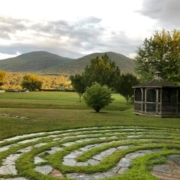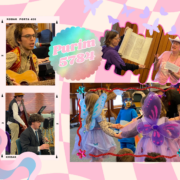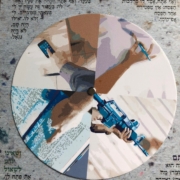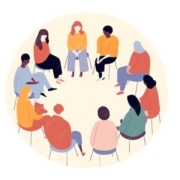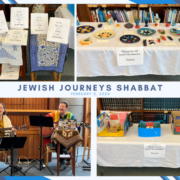As I was sitting in the sanctuary last Saturday morning during Shabbat services, a rabbit was munching on a nice green blade of grass covered in morning dew and stared at me through the window… for a long time. Birds of various sizes landed on the grass near him. This beautiful sight reminded me that our property doesn’t belong solely to us – it is also part of the natural world, and we share it with many other creatures, who rely on it for food, protection, and water. Taking care of it in a responsible way is part of our mission.
As the days get longer and summer beckons, CBI professional and lay leaders are busy planning for the summer and the year ahead.
As we move past Passover, I’d like to draw your attention to some of our upcoming events and programs. On Saturday, May 18 at 10am, you are all invited to a Jewish Journeys Shabbat morning service, during which we will celebrate Shabbat, our students and teachers, and will get a taste of what our students have learned over the course of the semester.
I know from speaking with y’all that the continuing conflict in Israel / Palestine is weighing heavy on many hearts. (Including my own.) Across our community we have many different relationships with that place and its peoples, and sometimes it is hard to know how to speak with each other given our range of views. This is true across the American Jewish community, and community divisions are emerging in many places. And yet, given rising antisemitism, now is a time when we need each other across Jewish community all the more.
I am still kvelling about the wonderful Purim Party that we held on March 23, in conjunction with NEFESH. Over 80 people of all ages joined us in celebration and community, in spite of the winter storm that unfortunately meant that some folks were snowed in and unable to attend.
“Why is this night different from all other nights?” That’s the question that launches us into seder. Many Pesach customs are designed to prompt questions. We ask why, and we plumb our traditions for answers, and meaning, and the nourishment our souls most need.
As a rabbi I am here to serve everyone in our community. I aspire to be here for you in sickness and in health, in celebration and in sorrow. I have the holy opportunity to learn and to teach, to rejoice and to mourn, and to build community with each and every one of you. I take this covenant seriously, and it is one of the things I love most about the work that I am blessed to do. I will always strive to approach any differences we may have with curiosity and an open heart. And I always want to hear from you about where you are and what matters to you.
Many of you have asked what I think about what’s happening in Gaza and Israel. In a word, I am heartbroken. Every time I pray, these days, I pray with all my heart for a negotiated bilateral ceasefire, return of all hostages, and an end to enmity between Israelis and Palestinians.
As the days get longer and we are awakened in the morning by the songs of birds newly arrived from points south, we are looking forward to all that spring brings to our community.
I am still kvelling about the wonderful Jewish Journeys Shabbat service last Saturday morning, when our community, including students, their parents, grandparents, and other congregants, gathered in our sanctuary to celebrate Shabbat together in song and prayer. Students’ work from their elective classes was featured, and the D’var Torah was given by one of our students. Afterwards, everyone enjoyed a communal potluck kiddush.
December was quite a month! During the week of Chanukah, we hosted and participated in a wonderful series of programs to celebrate the holiday.


